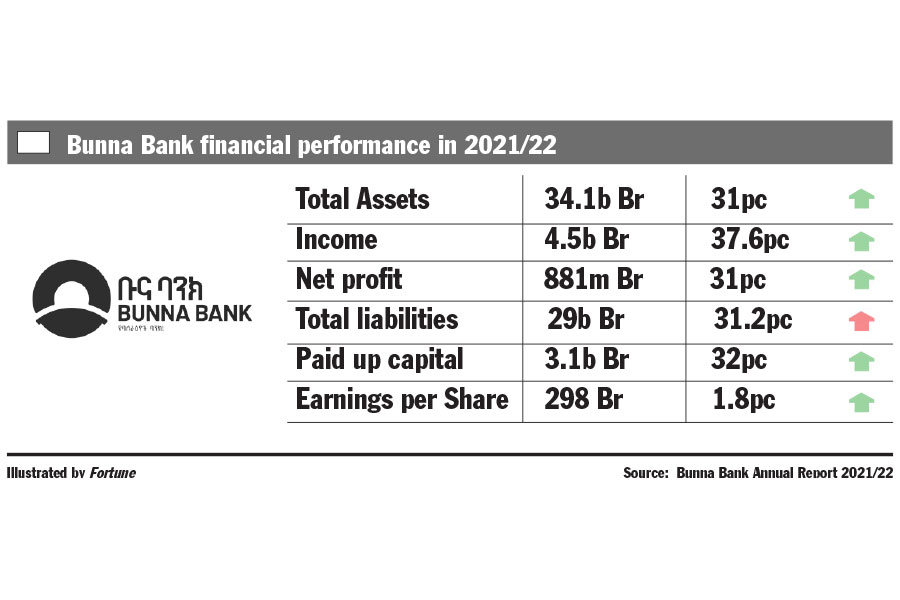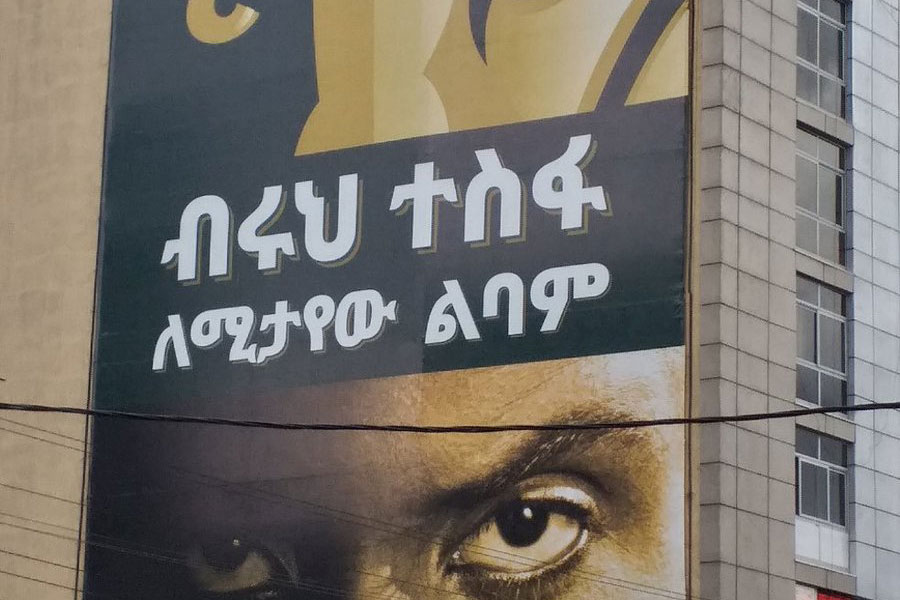
Radar | Oct 31,2020
Apr 17 , 2020
By Fisseha Asres
By taking initiatives, hoteliers and travel operators can stay on top of the situation, mitigate the impact of the pandemic and make use of the small bits of opportunity it offers, writes Fisseha Asres (asres.fisseha@gmail.com), a hotel and tourism consultant.
The Novel Coronavirus (COVID-19) has been contracted by millions of people around the world and claimed the lives of over 100,000.
As a result, over a third of the world population is under a restriction of one kind or another. Most economic activities are only open for essential goods and services providers. While economists may argue about the intensity of the slowdown, they are in agreement as to the severity of the impact across various sectors of the economy.
The hotel and tourism sector is not an essential service. Hence, its activities are hindered by most of the government policies to tackle the virus. The COVID-19 pandemic has affected 50 million jobs in the travel and tourism industry globally, according to the World Travel & Tourism Council. It is forecasted that it will take at least a year to 18 months for the sector to recover fully.
The gross domestic product (GDP) of Ethiopia for 2019 was 94 billion dollars, according to the World Bank. Out of this, the travel and tourism sectors contributed 10pc. It was also expected to reach 10.3 billion dollars this year.
In terms of employment, in 2018, the contribution of the sector to total employment was 8.3pc. This was a growth rate of 30pc over 2017. The contribution of the sector to overall employment was expected to be 14pc in 2020. There are also about 340 star-designated hotels in Ethiopia, excluding the Somali Regional State. Out of these, 42pc of them are in Addis Abeba.
In 2019, the capital enjoyed an absolute average daily rate (ADR) of 163.79 dollars in terms of constant currency, which sets aside the effects of inflation, according to the Solution Empowering the Hospitality Industry (STR). The city has the highest ADR of the continent, followed by Accra’s 160.34 dollars.
Some of the reasons given for the high level of ADR was its multiple demand drivers, such as a growing economy, successful airline and its status as the diplomatic capital of Africa. Also, the average occupancy level for Addis Abeba over the same period was 58.4pc, which was up by 6.5pc compared to the previous year.
In terms of occupancy, the city was fourth in Africa only after Cairo, Cape Town and Accra. The comparatively higher ADR and occupancy percentages gave an incentive to investors to join the sector. This is evident in the number of hotels in the pipeline to join the industry.
However, due to the COVID-19 pandemic, cancellations in the hospitality and tourism sector of hotels in Addis Abeba and other cities in the country, started as early as February. The severity of the impact began to show after the first COVID-19 patient was reported last month, after which hotel occupancy went down to single-digits except in the hotels which are being used to quarantine travellers from other countries.
The impact of the COVID-19 pandemic on the hotel and tourism sectors is expected to cast a serious and lasting impact on the hospitality industry in the short term and is only likely to recover in 12 to 18 months. The Addis Abeba Hotel Owners Association and the Ethiopian Hotel Owners Association did not want to waste time asking for an audience at the Ministry of Economic Development & Finance, and representatives held meetings to request freezes on the loans that most hotels have taken from banks.
The government has since allocated 15 billion birr to be disbursed through private banks to the sectors hardest hit by the pandemic, including hotels and tourism. The intention of the government seems to be to provide working capital through an overdraft facility and other loans to keep paying salaries to staff and discharging obligations.
To address the challenge of the pandemic, the initial action of most hotels was to close most rooms and send staff on annual leave. Some hotels have even given unpaid furloughs on a voluntary basis. In the meantime, the Ministry of Labor & Social Affairs, after holding meetings with employees and employers federations, issued a protocol that was adopted from the International Labor Organization (ILO).
But the full impact of the pandemic will start to be seen this month, if it is not already. Unfortunately, it is challenging to ascertain the financial damage caused by the pandemic, since there is no institution in the industry to capture hotel statistical data. The only way to do this will probably be through the Hotel Owners Association collecting information from individual hotels. The same can be done by the Tour Operators Association.
On a positive note, one of the possible effects of COVID-19 is the release of suppressed demand for the sector during the epidemic. The industry is expected to face a period of concentrated demand release after the pandemic, based on experiences from the Severe Acute Respiratory Syndrome (SARS) pandemic in 2003.
How can customer demand be quickly and accurately captured, a corresponding customer experience be designed, to turn the crisis into an opportunity for development?
These are the key challenges hoteliers and tourism service providers must ponder. While the crisis is ongoing, there are some places where hotel owners, tour operators, event organisers, their corresponding associations and Ethiopian Airlines can start.
Following the protocol issued by the Ministry of Labor & Social Affairs is non-negotiable. Beyond that, hotel owners, using their own funds or drawing from a special fund allocated through private banks, can use the opportunity this presents to renovate hotel rooms and facilities to improve service standards of their hotels, since there is no better time to do this job.
When it comes to hotel staff, it is advisable to train them and help them update their expertise. This is possible by using virtual technology, e-books and social media. Throughout the lockdown, employers should keep in contact and reach out to their staff.
Much of the burden will lie on the shoulders of hotel owners though, who will need to prepare hotels to reopen and jump-start operations in case the situation changes for the better rapidly. They will also need to prepare a cost-containment strategy to reduce the full impact of the pandemic.
Associations for hotel owners, tour operators, event organisers and Ethiopian Airlines need to create a platform whereby very attractive packages can be created for leisure, MICE and business travellers, in order to make Ethiopia a very attractive destination compared with other destinations in the region to attract early bird travellers after the pandemic is over.
Hotels and their associations should also negotiate with banks to extend the duration of loans and freeze interest payments until the situation improves. They should also negotiate with suppliers to extend the payment of hotel supplies purchased on credit. They would also need to collect from debtors to improve cash flow.
By taking initiatives such as these, hoteliers and travel operators can stay on top of the situation, mitigate the impact of the pandemic and make use of the small bits of opportunity it offers.
PUBLISHED ON
Apr 17,2020 [ VOL
21 , NO
1042]


Radar | Oct 31,2020

Radar | May 21,2022

Radar | Mar 11,2024

Radar | Feb 06,2021

Fortune News | May 20,2023

Radar | Dec 19,2018

Fortune News | Feb 12,2022

Fortune News | May 28,2022

Fortune News | May 18,2019

Viewpoints | Nov 11,2023

Photo Gallery | 178474 Views | May 06,2019

Photo Gallery | 168672 Views | Apr 26,2019

Photo Gallery | 159479 Views | Oct 06,2021

My Opinion | 137078 Views | Aug 14,2021
Commentaries | Oct 25,2025

Dec 22 , 2024 . By TIZITA SHEWAFERAW
Charged with transforming colossal state-owned enterprises into modern and competitiv...

Aug 18 , 2024 . By AKSAH ITALO
Although predictable Yonas Zerihun's job in the ride-hailing service is not immune to...

Jul 28 , 2024 . By TIZITA SHEWAFERAW
Unhabitual, perhaps too many, Samuel Gebreyohannes, 38, used to occasionally enjoy a couple of beers at breakfast. However, he recently swit...

Jul 13 , 2024 . By AKSAH ITALO
Investors who rely on tractors, trucks, and field vehicles for commuting, transporting commodities, and f...

Oct 25 , 2025
The regulatory machinery is on overdrive. In only two years, no fewer than 35 new pro...

Oct 18 , 2025
The political establishment, notably the ruling party and its top brass, has become p...

Oct 11 , 2025
Ladislas Farago, a roving Associated Press (AP) correspondent, arrived in Ethiopia in...

Oct 4 , 2025
Eyob Tekalegn (PhD) had been in the Governor's chair for only weeks when, on Septembe...

Oct 25 , 2025 . By YITBAREK GETACHEW
Officials of the Addis Abeba's Education Bureau have embarked on an ambitious experim...

Oct 26 , 2025 . By YITBAREK GETACHEW
The federal government is making a landmark shift in its investment incentive regime...

Oct 29 , 2025 . By NAHOM AYELE
The National Bank of Ethiopia (NBE) is preparing to issue a directive that will funda...

Oct 26 , 2025 . By SURAFEL MULUGETA
A community of booksellers shadowing the Ethiopian National Theatre has been jolted b...